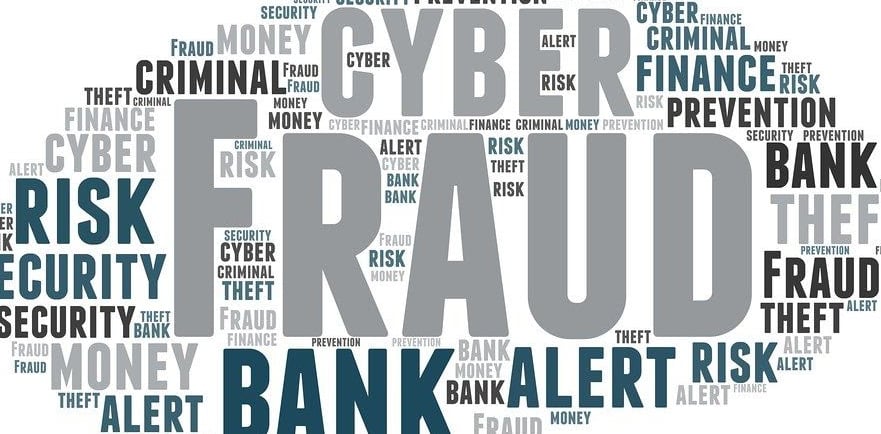

What is fraud?
Fraud is the intentional deception to secure unfair, or unlawful gain, or to deprive a victim, of a legal right. Fraud can violate civil law or criminal law, or it may cause no loss of money, property, or legal right, but still be an element of another civil or criminal wrong. Fraud happens when someone takes an action to lie or deceive causing you to lose money. This activity is known as financial harm
Am I at risk?
Fraudsters can target anyone! In fact, fraudsters normally mass market to millions for the few people that fall victim to fraudulent activity.
Fraudsters are experts at impersonating people and organisations;
Authority figures - the Bank, Police, Solicitors
HMRC, TV licence or any other known business
Delivery service needing payment
Romantic interest or friend
Even a family member
How could I fall victim to fraud?
This could be over the phone, letters and emails or through social media.
Below are just some examples of what may happen. Remember, fraudsters are very creative and often think up new ways to target victims and cause financial harm.
Your card, phone or other payment method could be stolen
Authority figures may insist that your money is not safe and to either transfer it to a specific account or change it into a currency and then instruct you to give it to them
You may receive an email or letter saying that:
you have won money and need to pay a fee to claim it
you owe money and need to pay urgently
to get money back on an investment you made, you need to pay a fee
After meeting/talking with someone online/over the phone they may say that they need money for hospital bills for visas, or for another reason
A friend or family member may contact you through email or social media claiming they need money urgently
You receive an email from a business asking for your bank details or password, claiming that you have outstanding charges
The purchase of goods, where they ask you to pay via Western Union, or to send money direct to their bank. Common scams for this are:
Deposit, to view a flat/house for rent
Puppies or other pets
A car, at an unbelievable price, and you need to pay a deposit to secure it, before they sell it
Identity Theft
And many more!
What can I do to prevent fraud?
Ensure that you immediately report any lost or stolen payment methods to the provider
Do not keep personal security codes with your payment method
Contact the company on the number found on their official website, to check if a payment is due
DO NOT PAY, unless you have met in person (not only online). This is likely to be a scam and, after the first payment, there will be more and more reasons why they need you to provide them with more money
Contact the family member directly. or through another family member, to ensure this is a genuine request
Always check, that you know the person or that the business is reputable
When checking companies:
Do an internet search
Use review sites
Check if they have a registered office
Is there a phone number that works?
I’ve been scammed. What should I do?
Below are the steps that you should take, depending on your situation.
You think a scammer has targeted you, but you didn’t give them your details or money
Report the scam to National Anti-Scam Centre - Scamwatch.
Report the scam account to the social media or other platform they used to engage with you.
If it looks like a scammer is impersonating an Australian business, contact the fair trading organisation in your state or territory.
If you have opened a link on your computer, or followed instructions on how to install a software, you may have installed something malicious. Uninstall the program and run a full antivirus scan to check for anomalies.
If you have received a message on a work laptop or phone, contact your IT department and let them know.
You’ve been scammed and lost money
Immediately report the transaction(s) to your bank or financial institution.
Complete a report through ReportCyber.
Stop all communication with the offender.
Report the scam account to the social media or other platform they used to engage with you.
Change your passwords to secure your online accounts. Visit IDCARE for advice on securing your accounts online.
You think a scammer has stolen your personal information
Contact your financial institution to secure your financial accounts.
Check idcare.org for advice on securing your accounts online.
Contact any other services that use your personal identity documents (e.g. ATO or Services Australia) to secure your accounts.
Complete a report through ReportCyber.
Make yourself a harder target: Secure your social media and other personal accounts, such as your email.
Change the passwords to any other accounts you think the scammer may have accessed, or to which they now have access. This could include banking, superannuation and email accounts. You should prioritise changing the passwords of any account that reused the same password as the compromised accounts.
Contact a credit reporting agency to see if any attempts to open accounts in your name have been made. For information on how to select an agency, visit IDCARE.
Do you suspect that you have been hacked, or may be a victim of a scam? Check our ‘Have you been hacked’ guidance on how to spot red flags, and solutions specific to your situation.
What to do if you've been scammed
Think you have been scammed? These steps will help you take action to limit the damage. Know you are not alone and you can recover from this. There is support available, if and when you need it.
Act fast if you've been scammed
If you've been scammed, follow these steps to take action.
Don't send any more money. Block all contact from the scammer.
Contact your bank or financial institution immediately to report the scam. Ask them to stop any transactions.
Warn your family and friends about the scam, so they can watch out for potential follow up scams.
If you've paid a scammer
If you've paid a scammer in any of these ways, here's what to do:
Credit or debit card – Contact your bank or card provider immediately to report the scam. Ask them to stop any transactions.
Gift card – Report it to the company who issued the card.
Wire transfer – Report it to the wire transfer company or bank that you used.
Money transfer app – Report it to the app provider (the seller or developer, not the app store).
Crypto – Report it to the platform or company you used to send the money.
Cash – If you sent by mail or delivery service, contact Australia Post or the delivery service used to see if they can intercept the package.
Unauthorised transfer – If a scammer has transferred money without your approval, report it to your bank straight away. Ask them to freeze your accounts and transactions.
If a scammer has your personal information
For example, if your personal details (like name, phone, email, address, identity documents) have been leaked in a data breach. Here's what to do:
Report the data breach to your financial institutions – Let your bank, super fund and any other financial services know.
Contact IDCARE – Call 1800 595 160 (Monday to Friday, 8am–5pm). They can help you make a plan (for free) to limit the damage.
Create a new, stronger password – Make sure you haven't used it before. If you've used the leaked password anywhere else, update it there too.
Watch out for suspicious contact – Look for suspicious emails, phone calls, texts or messages through social media. Block or don't answer anyone you don't know. Don't click on any links.
Monitor your bank account – Keep a close watch on your bank account for any unauthorised transactions.
Monitor your credit report – Request a temporary ban on your credit report to ensure no unauthorised loans or credit applications can be made.
For more tips, see identity theft.
If a scammer has accessed your computer or phone
A scammer pretends to be from your internet or phone provider. They say you have a technical problem and ask for access to your device. Then they infect it with a virus, to steal your passwords and financial information. Here's what to do:
If they accessed your computer – Update your security software and run a scan for viruses. Delete anything identified as a problem and reset your passwords.
If they accessed your phone or phone account – Report it to your phone provider. Update your security software and run a scan for viruses. Change your passwords or pins, block scam calls and consider changing your phone number.
You could also get an IT professional to check your devices in-person.
If you still need help, phone the Australian Cyber Security Hotline on 1300 292 371 (open 24 hours, 7 days a week) for expert cyber security advice, assurance and assistance.
Watch out for follow up scams
If you've been caught up in a scam, you may be targeted in a follow-up scam. Hang up the call, or block emails or text messages, if someone:
offers to swap your investment for another one to recover your losses
tells you to 'hang in there' as your investment will increase in value soon
offers to buy your shares at a premium but asks you to pay a fee to have 'restrictions' on the shares lifted
asks you to pay a fee for a fake share certificate
offers from a third-party organisation to recover what you lost in the scam
claims they can recover your losses for a percentage of the recovered losses or for a fee they say is a ‘tax’, ‘deposit’, ‘retainer’ or ‘refundable insurance bond’
asks you to pay for travel and accommodation costs to find the scammer who has taken your money
These are all tricks scammers use to get more money from you.
Report the scam
Agencies use information reported about scams to build cases against them and to warn and educate the public on how they work.
Report the scam and help others from falling victim to the scam. Information can help authorities stop the scammer.
Get support after being scammed
If a scam is causing you problems with debt, talk to a financial counsellor. This is a free and confidential service to help you get your finances back on track.
Being scammed is a horrible experience that can take a toll on your emotional wellbeing. If you need someone to talk to (24 hours a day, 7 days a week) contact:
Lifeline — 13 11 14 or the online Crisis Support Chat
Beyond Blue — 1300 22 4636 or Beyond Blue website
Useful links
https://www.smartraveller.gov.au/
https://www.homeaffairs.gov.au/
